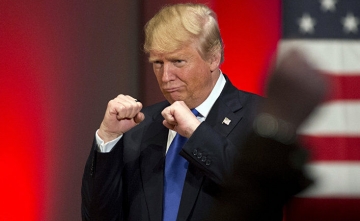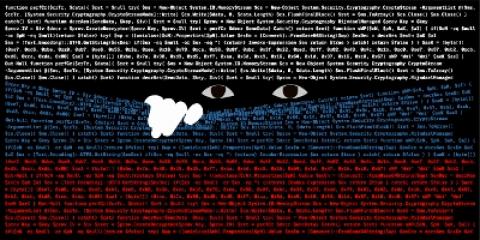[Portside posts that stimulated these response are:
"What exactly is the Russian threat?" Throughout the course of the nineteenth century, Russia, then an autocracy, was regarded by all 'freedom-loving' -- that is, progressive and democratic -- (European) commentators -- including Marx and Engels -- as a bulwark or reactionary, anti-democratic politics. That deserved reputation was, I believe, disrupted and, to some extent reversed, at least initially, by the revolutionary regime that came into power in 1917.
As no one on this list needs to be reminded, the Bolshevik revolution and the subsequent Soviet regime came crashing down more than twenty five years ago. There are reasons to think that, especially under Putin, Russia is once again playing a less than progressive and pro-democratic role in foreign and especially European politics. And an alliance of the current US and Russian administrations is not, therefore, I think, something to for the left to celebrate.
The article in question is at least disingenuous, I think, precisely because the author writes as though there was no fundamental change in Russian life initiated by the events of 1991. And it seems to me that Portside should not be satisfied simply with the standard "We're worse than them" recitations, but should try to provide insightful analysis of the social dynamics and political goals of the Putin regime. The article in question does not go beyond obscuring further the nature of that regime.
John P. Pittman
====
So what exactly is the Russian threat? Is it that Trump has Russian connections? I'm sure he does. I'm sure there will turn out to be financial interests between him and the Russian oligarchs. I agree there needs to be an investigation. I don't think the article argues against the need for opening up of Trump's financial and other ties to Russia. I'll bet, however, that the Trump people were also talking to other countries and trying to make deals. His goal is to grab more and more wealth and power. Trump is going to rob us all blind. The problem is deeper than "Russia."
I have also thought that he admires Putin as a nationalistic strong man and is part of the right wing anti-democratic surge going on in many countries. I think this is the danger he and Trump pose, not so much the hacking and the intelligence gathering. I think our `enemy' is this anti-democratic nationalistic movement not only Putin or Russia. This is what needs to be named. The build up of NATO troops in Eastern Europe is a provocation that brings us closer to some military confrontation.
Besides the hypocrisy that we don't intervene in other countries' elections for our own purposes and we are so shocked.
Judy Atkins
====
If Russia interfered with our election to help Donald Trump they are our enemy, no matter how you explain their behavior in the past.
Charles Fuller
====
Right on Mr. Kovalic....this is a old buggy bear of the right and the liberals (and many Social Democrats I might add) which we all hoped would go away after the west destroyed the Soviet Union. We hoped, despite the loss of socialist USSR, that the Cold War would finally be over and our children would be safe from the possibility of nuclear war. No way. As Kovalic rightly point out, the power of the military/industrial complex (almost a cliche, now, but so true) The battle to transfer tax money from the military budget to the social budget goes back so many years I can't remember. While he points out rightly that Trump's expressed policy toward the Russians is the one right thing he's proposed, lets not fool ourselves, since he's calling for a greatly expanded military budget. Until the Democrats get off their anti-Russia merry-go-round I'm afraid the world will remain on the brink of nuclear destruction, 'cause if I was Putin I'd be one wary Russian.
Lincoln Smith
====
The Russian people are not our enemies but their leadership sure as hell is. Same for us, the American people are not your enemy, but we share one thing, our leadership is not our friend or yours! Beware!
Kim Gugliotta
====

During their recent phone call, Putin told Trump that Russia was ready to extend the agreement to cut nuclear arms, set to expire in 2020. Trump's response: Not interested.
credit - Market Leader - February 19, 2017
====
Notwithstanding the barrage of news reports concerning the personal nature of Trump's relationship with Russia and the implications of that for his Administration's policies, I have very little interest in determining its true nature. That is in part because there is no way of really knowing the truth of various allegations, and in part because the implication of all the coverage is that Russia poses some kind of threat to US democracy. No doubt Trump's relationship is corrupt because virtually every move he has made in business and politics has reeked of corruption. But as to intelligence agency accusations about Trump's Russian ties, the articles that have appeared in Intercept, which have challenged the more extreme claims and resulting speculations absent more substantial and supported evidence, seem more measured and grounded than most. And the framework of contemporary Russian politics is portrayed more usefully in Stephen Cohen's articles in the The Nation then the rehashed fear-laden Cold War narrative than has returned in full force within the media and academia.
More important, however, than trying to understand Russian developments from this distance is trying to meet the challenge debates over Russia pose for us domestically. That is, how do we carve out an independent politics on issues where Trump's demagoguery speaks with a superficial resemblance to progressive politics (if there was no resemblance his rhetoric would fall on deaf ears). This is the case when he opposes NAFTA and the TPP, or calls for a revival of manufacturing and building infrastructure, just as when he supports a better relationship with Russia or calls into question NATO. We also oppose NAFTA, the TPP, and should oppose NATO and remnants of Cold War anti-Russian politics. But we do so for opposite and conflicting reasons then Trump and his supporters who proclaim such positions based on an "American first" racist nationalism that is dangerous in the extreme.
And, on that score, as with so much else, the similarity between Trump's use of such issues and that of Italian and German fascism is so direct that it has to have been a conscious choice. Both the Nazis and Italian Fascists borrowed economic development and job creating programs that had been put forward by labor and the left; the Nazis, for all of Hitler's bellicosity, also would proclaim that the buildup of military strength would mean that Germany could gain its goals without war. The Nazis would use Marxist critiques of British colonialism, left-wing critiques of the Versailles Treaty to justify their politics, while visitors to Italy during the early years of Mussolini's rule would be greeted by slogans welcoming them to "Proletarian and Fascist" Italy.
To avoid the trap of allowing misleading rhetoric dictate our policies, we need to continue to articulate and organize around an alternative world view. And thus we ought to reject any attempt to oppose Trump by falling into the path of looking toward the US military, the CIA or other intelligence agencies as allies. There is something very dangerous to democratic politics when critics of right-wing politics turn in that direction -- no matter how corrupt Trump's ties with Russia may be, it is striking and saddening that this has become the dominant talking point in numerous denunciations of him, rather than his choice of Jeff Sessions as Attorney General. Trump's illegitimacy as president is his racism for that explicit racism directly undermines the integrity of our society more than anything else he has said and done. Moreover, the whole anti-Russia rhetoric is used by some to avoid the real reasons for the Democratic loss in November, to fail to examine the implications of the Wikileaks revelations (the content ignored when the process of revelation becomes a focus), and thus inhibit the renewal of broad-based progressive opposition.
On the other hand Trump's anti-Cold War rhetoric can be used against him -- just as we can do so to his anti-Free Trade rhetoric. Indeed labor and the left also oppose business-driven trade deals, but we do so by organizing to assert workers' rights, to increase wages, protect the environment, defend immigrant workers and end to US corporate exploitation of nations' beyond our borders. So too, we should strive to have better relations with Russia and yes, we do not need NATO -- but therefore we ought to reduce our arms budget and nuclear arsenal, strengthen the United Nations, cut the military/diplomatic support we give to Israel, Saudi Arabia, Egypt, end our wars and armed actions abroad and stop interfering in other countries' internal affairs.
Finally, we need to develop an understanding of Russia that rejects the dichotomy between demonization and uncritical support (just as we could oppose the demonization of Saddam Hussein without thereby becoming supporters of his brutal domestic policies and aggressions). The mainstream media fails to do so and instead relies on liberal Russian critics who see freedom in neo-liberal terms, supporting free trade and Western models which proved so disastrous to hopes for positive changes in 1991. Interesting in this respect is that Gorbachev, who clearly opposes Putin on domestic politics, nonetheless supports him on most foreign policy issues (Crimea, the Ukraine, NATO). So too, we can reject the notion that Russian foreign policy seeks to undermine US national security while at the same time standing up as open critics of Putin's domestic repression, to the homophobia and sexism that have become Russian public policy, to growth of inequality and concentrations of wealth there.
More substantive -- and more complex -- is the need as Marxists, to look at the dynamics of Soviet history in its positive and negative dimensions, in the meaning of that legacy for Russia today in order to build an historically rooted understanding of socialism (just as we need to do so for China and Vietnam), as part of the process of challenging right-wing authoritarianism at home without embracing the "liberal" neo-liberalism that brought us to this point.
Kurt Stand
====
Impeach him.....handle whatever comes
Ted Kuester
====
When I read a headline that begins "Listen Liberals ." I know I am unlikely to find what follows edifying.
If the author means that seriously in some sensible way, then he or she is not talking to me. But mostly it means that I am going to run into a series of straw man arguments.
And that's the case here. The whole thing is based on an unspoken premise that because the U.S. is a shitty actor in the world, "Russia" meaning the Russian state and its government, is ipso facto benign.
But that's a stupid framing that cannot touch on the questions that matter to me in trying to think about the current world. It's not a New Cold War, and Russia's role in the world is strictly imperialist. The fact that the U.S. remains a bigger imperialist changes neither the gradual decline of U.S. imperial power and the re-emergence of increasingly multi-centric imperialism in a global capitalism that no longer has any competing even arguably non-capitalist social systems organizing substantial territories.
Meanwhile the left mirror of the New Cold War wants to make any conflict with the U.S. "anti-imperialist" and underwrites apologism for mass-murderous governments like that of Syria. I won't go along.
This is disappointing, like so much these days.
Not that it matters, because we on the left in the U.S. are an irrelevancy. But this kind of thinking won't help us change that.
Chris Lowe
Portland, Oregon


Spread the word